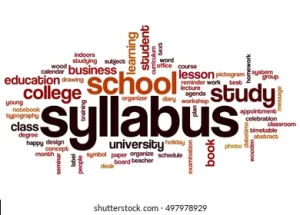Introduction
This course is designed for learning outcome based curriculum as part of the vocational training packages for the job role of Junior Software Developer. The curriculum has been developed for the secondary students of vocational education and is aligned to the National Occupation Standards (NOSs) of a job role identified and approved under the National Skill Qualification Framework (NSQF).
The curriculum aims to provide children with employability and vocational skills to support occupational mobility and lifelong learning. It will help them to acquire specific occupational skills that meet employers’ immediate needs. The teaching process is to be performed through the interactive sessions in classrooms, practical activities in laboratories and workshops, projects, field visits, and professional experiences.
About Junior Software Developer Course
This course is for two years in 10+2 pattern. So for 11th standard the curriculum details are as follows –
11th Standard Curriculum
Part A Employability Skills
- Unit 1 Communication Skills – III
- Unit 2 Self-management Skills – III
- Unit 3 Basic ICT Skills – III
- Unit 4 Entrepreneurial Skills – III
- Unit 5 Green Skills – III
Part B Vocational Skills
- Unit 1 Software Construction Essentials
- Unit 2 Operating System and Computer Network
- Unit 3 Python Programming
- Unit 4 Data Structure
12th Standard Curriculum
Part A Employability Skills
- Unit 1 Communication Skills – IV
- Unit 2 Self-management Skills – IV
- Unit 3 Basic ICT Skills – IV
- Unit 4 Entrepreneurial Skills – IV
- Unit 5 Green Skills – IV
Part B Vocational Skills
- Unit 1 Relational Database Management System – MySQL
- Unit 2 Advanced Python Programming
- Unit 3 Software Engineering
- Unit 4 Emerging Trends and Social Impact
List of Material Required
The list given below is suggestive and an exhaustive list should be prepared by the vocational teacher. Only basic tools, equipment and accessories should be procured by the Institution so that the routine tasks can be performed by the students regularly for practice and acquiring adequate practical experience.
- Desktop Computers
- Peripherals
- Printers
- Digital Camera
- Operating System – Windows and Ubuntu Linux
- Software – Python IDLE, RDBMS – MySQL,
- Office Productivity Tools – MS Office or LibreOffice
Field Visits & OJT (On-the-Job Training)
In a year, at least 3 field visits/educational tours should be organised for the students to expose them to the activities in the workplace. During summer or winter vacation, students can undergo one week on-the-job training in nearby industry or work place. Visit a Software Development Company and observe the following:
During the visit, students should obtain the following information from the organization:
- Computer System, parts and peripherals.
- Specifications of various parts of computer system.
- Types of computers.
- Types of printers.
- Types of scanners.
- Storage devices and storage capacity of various storage devices.
- Comparison of various parts based on cost.
- Software Development Process – Software Requirement Specifications, Analysis, Designing, Coding, Debugging, Testing, Implementation and Maintenance.
- Programming languages and RDBMS,
- Software Testing Tools and equipment required.
- Software Development Work environment,
- Any other relevant information
Teachers Eligibility (Required Qualification)
Qualification and other requirements for appointment of vocational teachers/trainers on contractual basis should be decided by the State/UT. The suggestive qualifications and minimum competencies for the vocational teacher should be as follows:
Bachelor of Engineering / Technology in Computer Science / Technology OR Master of Computer Application (MCA) OR Master of Science (Computer Science) OR Master of Science (Information Technology) OR NIELIT “B” Level Certificate.
It is desirable to have the knowledge of Software Development for a teacher who will actually teach the topics of this course.
Minimum Competency Required
The candidate should have a minimum of 1 year of work experience in the same job role. He should be able to communicate in English and local language. He should have knowledge of equipment, tools, material, Safety, Health & Hygiene.
Age Limit
The Teacher must be between 18-37 years as on January 01 2024. Age relaxation to be provided as per Govt. rules.
More details about syllabus and scope and limitations will be published soon on our website. Please click here to subscribe to receive email notifications when we publish new information about this subject.




